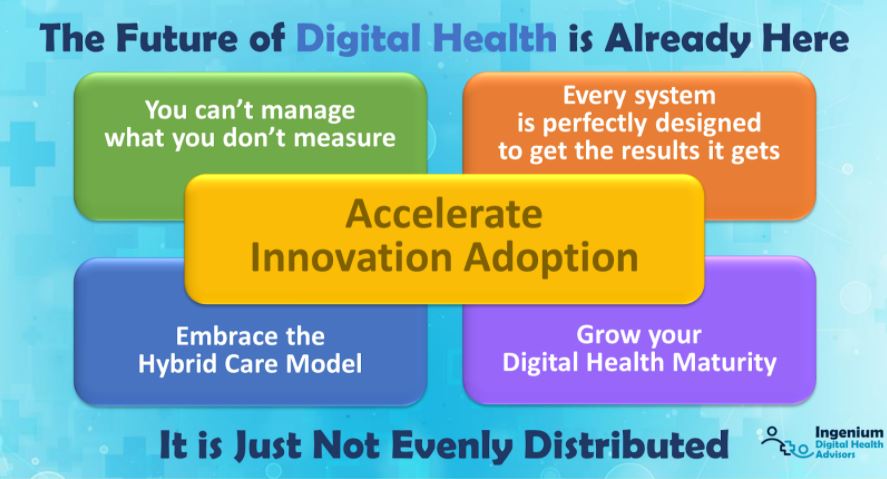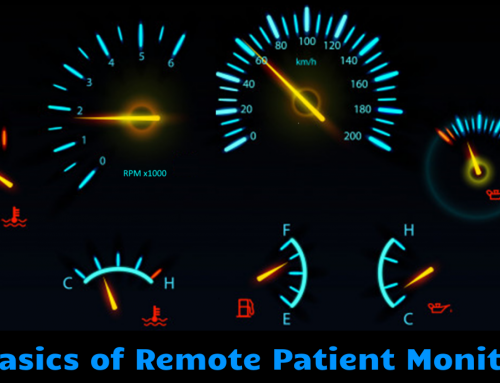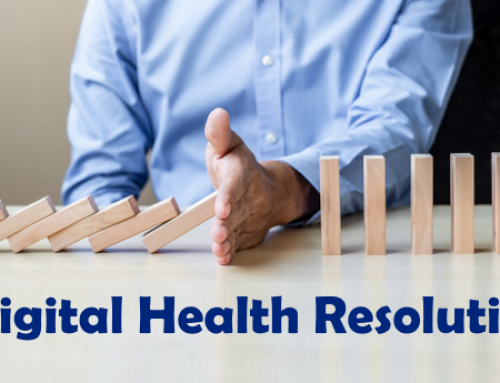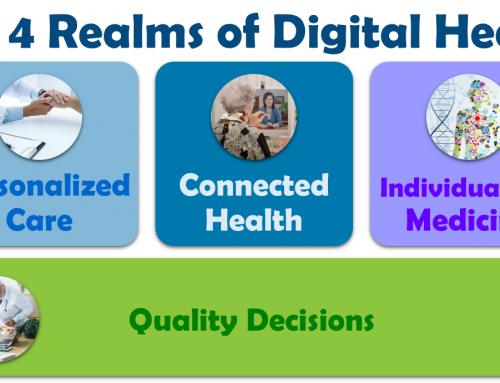Even before the Covid-19 health crisis the Digital Health future was already here. It just was not evenly distributed and only existed in isolated experiments and trials. But Covid-19 has accelerated the use of digital health technologies including the widespread adoption of video-based telemedicine as a showcase digital health technology.
As the health crisis continues, I urge healthcare leaders to embrace the Covid world as the new normal. Stop going for temporary stop gap measures and resist being stymied by the reduction in revenue. Covid will stay with us at least for another 12 months, if not even 18 months.
More importantly, Covid already has and will continue to have long-lasting changes on the way we work, the way we communicate, and the way we receive healthcare.
Follow the Money
Silicon Valley companies and successful investors have been hoarding mountains of cash for years. Now, the venture capital and private equity monies are flowing into digital health innovation like never before. Already, $50 Billion has been invested in digital health innovation over the past 10 years. Now the predictions are estimating an investment of at least another $150 Billion in just the next 5 years.
The implications for health systems and physician practices are that capital is going to flow into innovative products and services that the modern healthcare customer wants. This new set of healthcare tools and services will once and for all topple the pedestal-approach to patient care that healthcare has long practiced.
The threat is no longer just Dr. Google (which was more of an annoyance to physicians). The threat now is that “your physician will Zoom you now” — and it can be any physician, anywhere. Or that automated, AI-enabled technology manages much of the mundane tasks of care better and more conveniently than ever before.
During the early stages of the Covid-19 crisis, Winston Churchill was often quoted: “Don’t let a good crisis go to waste”, so here are my five most important recommendations for forward-thinking leaders who are committed to ensure not only the survival of their organization, but to set them up to thrive in this post-covid, post-distancing, virtual work world.



5 Mindsets to Prepare for the Digital Health Future
When it comes to embracing the future, the first things that need to change are the mindsets that were embraced in the “old reality”. These are the principles, dogmas, values even that leaders must relentlessly communicate and demonstrate to prepare the organization for the digital health avalanche.
Here are the five most critical mindset that we recommend your organization start adopting yet this year to go powerfully into 2021 and into the post-covid-19 world.
1) You can’t manage what you don’t measure.
At the basis of a future-proofing strategy is the tried and true basic tool from decades of performance improvement in every industry: To succeed, you need to identify and set targets for a broad set of key performance indicators (think: balanced scorecard) for all of your services, especially those care services enabled by digital health.
This is a core business practice that many healthcare organizations have long neglected, measuring mostly only the reimbursement. A balanced dashboard of key indicators of success is critical during these and future frantic times to keep your finger on the pulse and lead.
2) Every system is perfectly designed to get the results it gets
Once you know your actual results and have established your goals, you can go about changing your systems to get better outcomes. Not getting the results you want is never about the people. People are highly creative in finding the best shortcut or the easiest way to get something done that they can get away with. To change the results, you need to change the system.
The system does not just include technology, but also includes the workflows, policies, procedures, training, and support as well as marketing, change management and the direct and indirect incentives for staff and patients.
3) Embrace the Hybrid Care model
One of the things that is definitely not going to change back to how healthcare was delivered pre-Covid-19 is the hybrid care model of care delivery, i.e., the delivery of care either in person or virtually.
The long-term future of healthcare delivery has always been the delivery of care “at a distance” to patients when they need it where they want it. That progress is inevitable and the Coronavirus just accelerated telehealth adoption from 8 years to 8 weeks.
Post-Covid 19 be prepared for a multitude of virtual-only healthcare offerings to be available to your patient population – and if you can’t offer a similar, ideally better, experience, your patient volume will go down and your business model will fail.
4) Grow your Digital Health Maturity
Many organizations have begrudgingly started to use digital health in response to demands and expectations. They “tolerate” digital health and half-heartedly “support it.
The best organization, however, leverage digital health solutions to move from “supported” to “strategic” or even “transformative” — where digital health is used to reinvent the organization from the ground up.
The best, most revered long-standing companies have always reinvented themselves every few decades. HP did, IBM did, GE did and even the Mayo Clinic is doing it. The future belongs to those who grow up, who mature, and who embrace and leverage the opportunities that digital health brings.
5) Accelerate Innovation Adoption
Finally, the paramount and most important mindset and culture shift is to learn how to accelerate the adoption of new technologies and other innovations. In my opinion this ability is the most critical survival skill. We are entering an age of unprecedented innovation at a never seen before speed. It is the agile organizations that not only can embrace change, but leverage it that will survive.
The onslaught of slick solutions and services for the modern healthcare consumer (formerly known as “patients”) will be endless. It already started before Covid: Augmented Intelligence (AI), Internet of Things (IOT), Big Data, etc. just to name a few of the buzzwords.
For healthcare organizations to thrive over the next 10 years, they must learn to adopt innovation quickly — in a matter of weeks not years. This requires a massive culture shift and with it relentless engagement and selling by leaders. But the alternative of slow adoption or, worse, ignorance, leads to atrophy and demise and as such is not a viable strategy.
How Covid-19 differs from other crises
A crisis like Covid needs to be managed like an untamed horse. A tsunami may come, wreak havoc, then leave – like 9/11 or Black Friday.
Covid is different.
Covid-19 is a prolonged crisis and thus requires a very different mindset and approach.
This is a watershed moment for many organizations and for many people. Physicians are leaving the profession in droves. Clinical practices are gobbled up by regional hospitals for half their pre-Covid valuation.
Just like taming a wild horse, managing this crisis requires confidence, patience, persistence, and adaptation. It’s a dance. This wild horse named Covid has endless energy and creative ways. It requires special leashes and ropes to wrestle the crisis until you have it under control.
Technology, one of the tools, is certainly not a panacea (“says the geeky engineer!”), but technology will most certainly not go away. Especially not with the success with which technology successfully dampened the blow of Covid (e.g., the internet, home delivery, video conferencing, vaccine research sharing, etc.).
The five mindsets I recommended provide you with specialized tools to get this crisi under control and to ride it powerfully beyond Covid-19. And they are all about the same thing: As a leader, use this opportunity to mobilize your team to change the way you practice medicine.
Because even if you don’t, others are already doing it. And Obsolescence is no fun.
The Telehealth Tuesday Trigger:
Which mindset is your organization adopting?
Which one of the five do you think is the hardest to embrace?








To receive articles like these in your Inbox every week, you can subscribe to Christian’s Telehealth Tuesday Newsletter.
Christian Milaster and his team optimize Telehealth Services for health systems and physician practices. Christian is the Founder and President of Ingenium Digital Health Advisors where he and his expert consortium partner with healthcare leaders to enable the delivery of extraordinary care.
Contact Christian by phone or text at 657-464-3648, via email, or video chat.









Leave A Comment